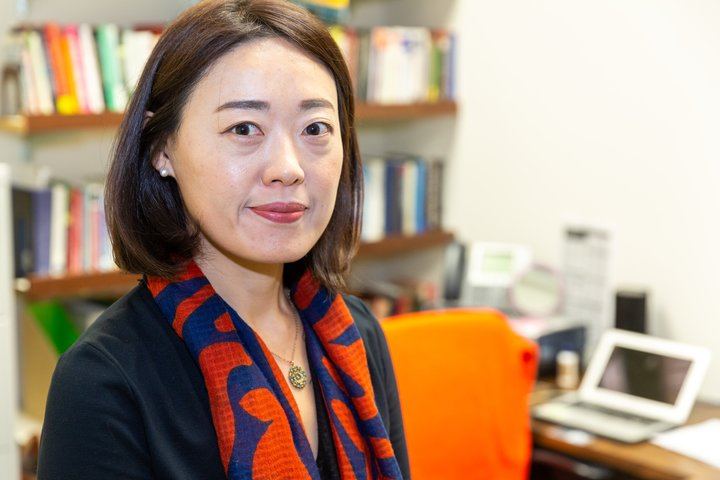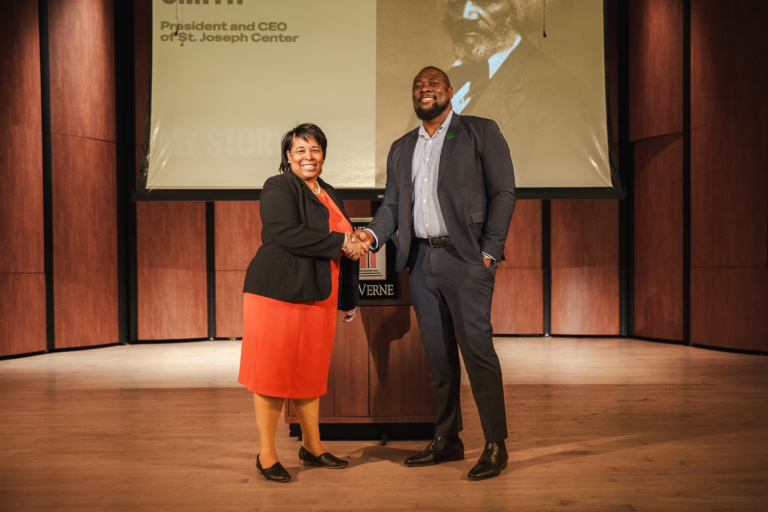University of La Verne Offering One of Nation’s First Universal Basic Income Courses

From Bill Gates to Richard Branson, influential business leaders around the world have weighed in on universal basic income – a government stipend paid regularly to all people unconditionally. They see a future where the growth of automation will eventually eliminate jobs and make cash handouts a necessity.
Now 17 students – whose majors range from journalism to chemistry – have been exploring the concept at the University of La Verne, one of the first schools in the country to offer a course on the topic.
Through research, presentations, and debate, the students have been learning about the centuries-old concept, along with other issues such as the social safety net, political freedom, and social justice. The course began in January and continues through May.
“The course isn’t to persuade students to support UBI. It’s a great venue to start examining social, economic, and political policy and cultural issues in our society,” said Dr. Soomi Lee, associate professor of public administration in the university’s College of Business and Public Management. “UBI also helps us think about what constitutes a good life and good society, which helps us to envision the future of our own lives and the society we’d like to live in.”
Basic income is a concept dating back to the 16th century, when humanists considered it a pathway to utopia. They argued that the poor should not have to rely solely on churches for assistance and that the municipal government should take up the mantle of assisting them. The concept evolved in the following centuries to a system that should benefit everyone, unconditionally, regardless of income or employment status.
But with the exception of the state of Alaska, such a system has not been embraced in the United States and exists in few other parts of the world.
In the last few years, various business and technology leaders, such as billionaires Richard Branson, Elon Musk, and Bill Gates have warmed up to the concept, saying it will become necessary with robots and other forms of automation taking over jobs previously held by humans. The city of Stockton, Calif. is experimenting with the concept by giving low-income residents $500 per month.
A McKinsey Global Institute study released last year estimated between 400 million and 800 million jobs will be automated by 2030.
Opponents argue UBI will be just as expensive as welfare, that handouts will discourage Americans from working harder, and that such a system does not guarantee reform in the current welfare system.
Lee, who has taught at the University of La Verne for seven years became interested in the topic several years ago. She has since joined the board of the U.S. Basic Income Guarantee Network, a group of academics, activists, and policy makers interested in the subject.
Last year, she met with Stanford University philosophy professor Juliana Bidadanure, who is teaching universal basic income, and inspired her to create a similar course.
Students who are in the class will give presentations on social aspects connected to the subject, including philosophies of social justice and freedom, poverty and social welfare programs, automation and the changing nature of the labor market, funding issues, and various alternative models.
Quinn Wynes Frigeri, a sophomore behavioral science major, said she enrolled in the course because she considers it important to have a firm grasp of the country’s economic system and how it relates to society.
The Las Vegas native has not decided whether she supports or rejects the implementation of universal basic income.
“It’s important for a college student to be familiar with universal basic income because we are our nation’s future leaders, and we need to be well aware of the economic policies that we could be voting on in the future,” she said.


